26-30 June 2017. Cape Town, South Africa. Themed “Sustainable Aquaculture – New Frontiers for Economic Growth – Spotlight on Africa”, World Aquaculture 2017 brought together some 3,000 industry, academic and government delegates from the 100 member countries of the World Aquaculture Society (WAS).
 The meeting was attended by 11 SADC Member States, viz. Angola, Botswana, Malawi, Mauritius, Namibia, Seychelles, South Africa, Swaziland, Tanzania, Zambia and Zimbabwe. Other countries which participated in the meeting include Kenya, Nigeria and Uganda.
The meeting was attended by 11 SADC Member States, viz. Angola, Botswana, Malawi, Mauritius, Namibia, Seychelles, South Africa, Swaziland, Tanzania, Zambia and Zimbabwe. Other countries which participated in the meeting include Kenya, Nigeria and Uganda.
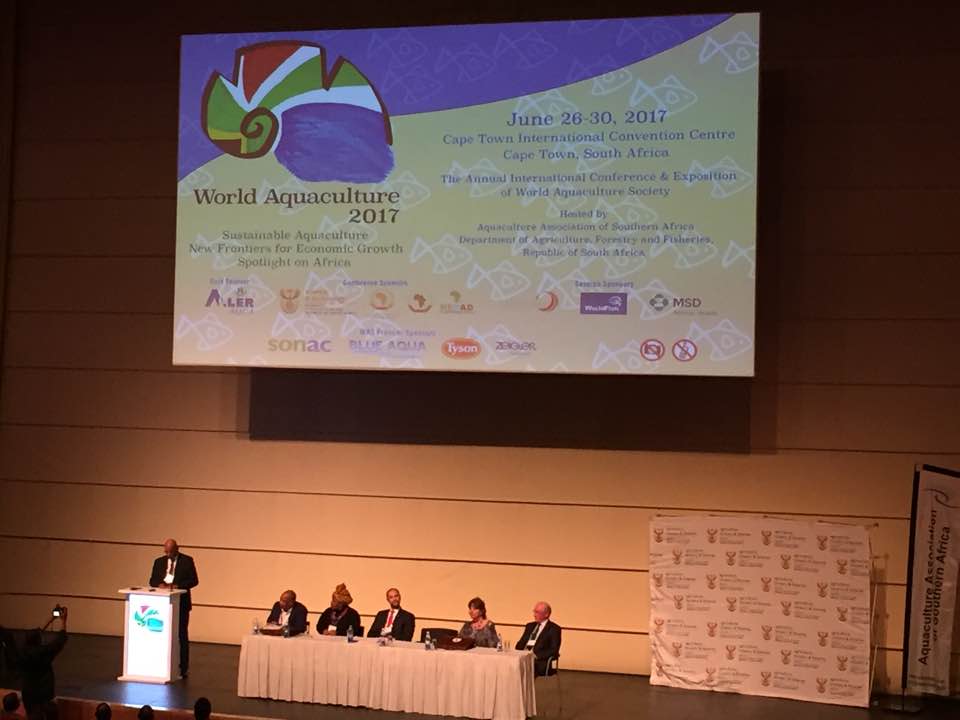 Development partners in attendance included the African Union Inter-African Bureau for Animal Resources (AU-IBAR), Centre for Coordination of Agricultural Research and Development in Southern Africa (CCARDESA), the Food and Agriculture Organization of the United Nations (FAO), Intergovernmental Agency for Development (IGAD), Indian Ocean Commission (IOC) SmartFish Programme, NEPAD Planning and Coordination Agency (NPCA), Bill and Melinda Gates Foundation, and WorldFish.
Development partners in attendance included the African Union Inter-African Bureau for Animal Resources (AU-IBAR), Centre for Coordination of Agricultural Research and Development in Southern Africa (CCARDESA), the Food and Agriculture Organization of the United Nations (FAO), Intergovernmental Agency for Development (IGAD), Indian Ocean Commission (IOC) SmartFish Programme, NEPAD Planning and Coordination Agency (NPCA), Bill and Melinda Gates Foundation, and WorldFish.
Sustainable Aquaculture - New Frontiers for Economic Growth.
AQUA Spark, the Dutch based aquaculture investors, announced a $15 million Africa fund on the first day of the World Aquaculture Society conference in Cape Town. In a partnership with Msingi, an East African economic organisation, the fund will focus on tilapia and catfish producers, and will invest in all farming aspects.
Aqua Spark’s Amy Novogratz, launching the fund during a seminar on financing African aquaculture, said she and her partner Mike Velings were looking for additional investors to come on board.
The conference was hosted by the Aquaculture Association of Southern Africa and the South African
Department of Agriculture, Forestry and Fisheries.
 Development partners in attendance included the African Union Inter-African Bureau for Animal Resources (AU-IBAR), Centre for Coordination of Agricultural Research and Development in Southern Africa (CCARDESA), the Food and Agriculture Organization of the United Nations (FAO), Intergovernmental Agency for Development (IGAD), Indian Ocean Commission (IOC) SmartFish Programme, NEPAD Planning and Coordination Agency (NPCA), Bill and Melinda Gates Foundation, and WorldFish.
Development partners in attendance included the African Union Inter-African Bureau for Animal Resources (AU-IBAR), Centre for Coordination of Agricultural Research and Development in Southern Africa (CCARDESA), the Food and Agriculture Organization of the United Nations (FAO), Intergovernmental Agency for Development (IGAD), Indian Ocean Commission (IOC) SmartFish Programme, NEPAD Planning and Coordination Agency (NPCA), Bill and Melinda Gates Foundation, and WorldFish.
The World Aquaculture Society took its annual conference to Africa for the first time in 2017 – turning the spotlight on the potential of aquaculture production to support economic development and investment opportunities in the world’s second-fastest growing regional economy.
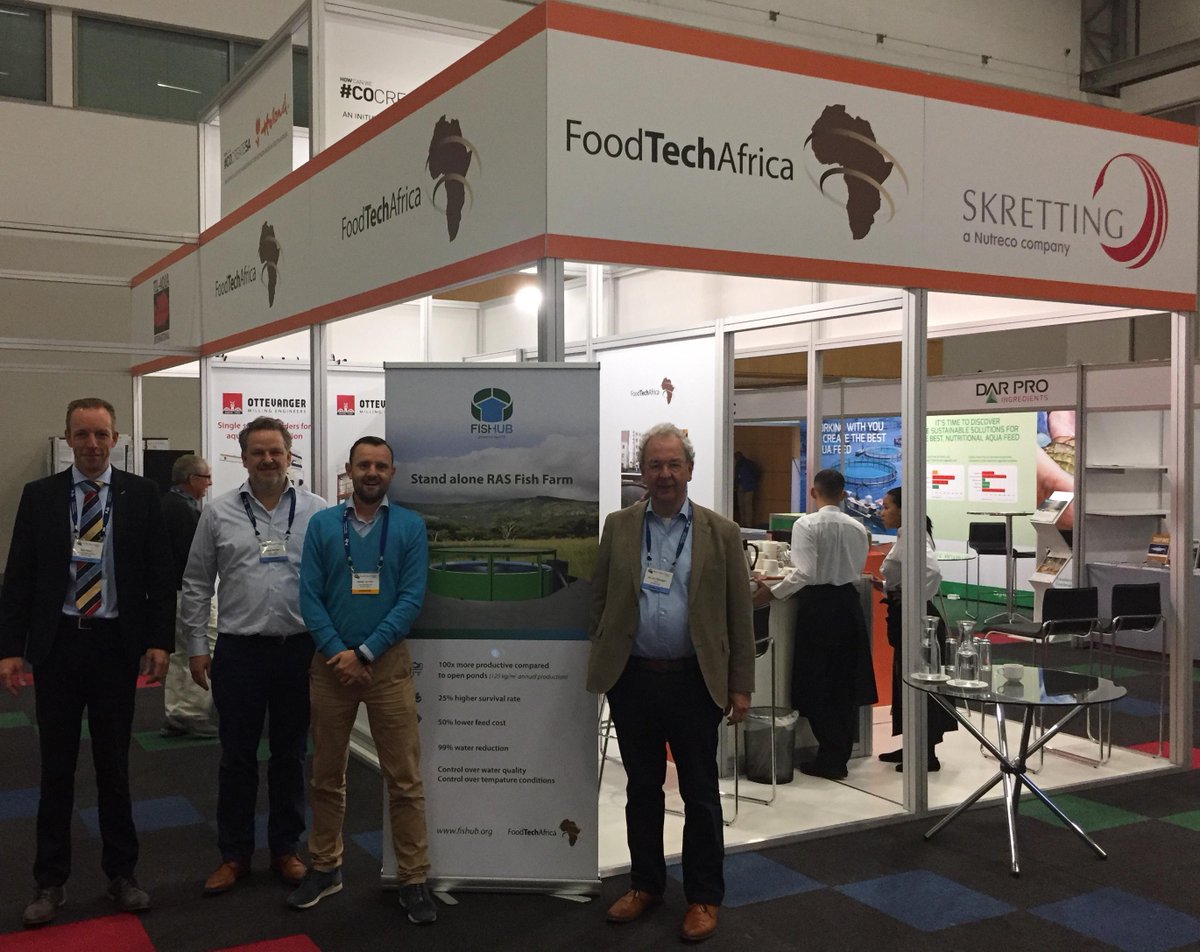 Aquaculture is increasingly important as an environmentally sustainable way to meet global demand for fisheries products, while Sub-Saharan Africa’s vast inland waters and coastlines – home to a small but rapidly growing aquaculture sector – present a largely untapped opportunity to contribute to the nutrition and socio-economic development needs of the region.
Aquaculture is increasingly important as an environmentally sustainable way to meet global demand for fisheries products, while Sub-Saharan Africa’s vast inland waters and coastlines – home to a small but rapidly growing aquaculture sector – present a largely untapped opportunity to contribute to the nutrition and socio-economic development needs of the region.
Key programmes which were discussed and adopted include:
African Extrusion Seminar Aquatic Feeds
 Aquaculture is increasingly important as an environmentally sustainable way to meet global demand for fisheries products, while Sub-Saharan Africa’s vast inland waters and coastlines – home to a small but rapidly growing aquaculture sector – present a largely untapped opportunity to contribute to the nutrition and socio-economic development needs of the region.
Aquaculture is increasingly important as an environmentally sustainable way to meet global demand for fisheries products, while Sub-Saharan Africa’s vast inland waters and coastlines – home to a small but rapidly growing aquaculture sector – present a largely untapped opportunity to contribute to the nutrition and socio-economic development needs of the region. - an “Environmental Management Framework for Sustainable Aquaculture Development in Southern Africa” that provides the basis for sectoral policy and management, which is a collaboration with the African Union Inter-African Bureau for Animal Resources (AU-IBAR). The framework will enable Member States to i) apply the principles of ecosystems approach to aquaculture (EAA) at the sectoral level; and ii) identify key components to develop and implement appropriate mechanisms for specific regional and national environmental management of aquatic animal production systems; and
- Secondly, drawing lessons from key success factors on growth of the aquaculture sector in a number of SADC countries, including Malawi, South Africa, Tanzania, Zambia and Zimbabwe, a “Science-Based Aquaculture Development Model” together with a mechanism for a regional “Aquaculture Scientific Mentorship Scheme” for young scientists were proposed, which will involve collaboration with WorldFish, and also between universities and research institutions, governments, private sector and communities in the region.
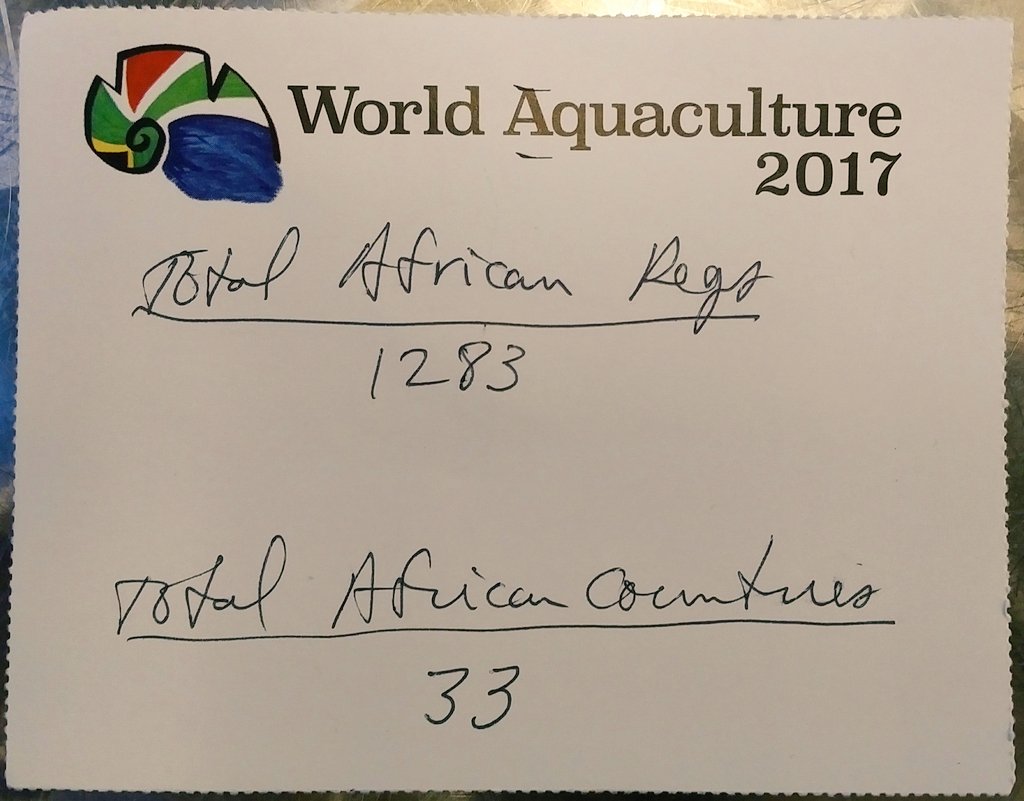
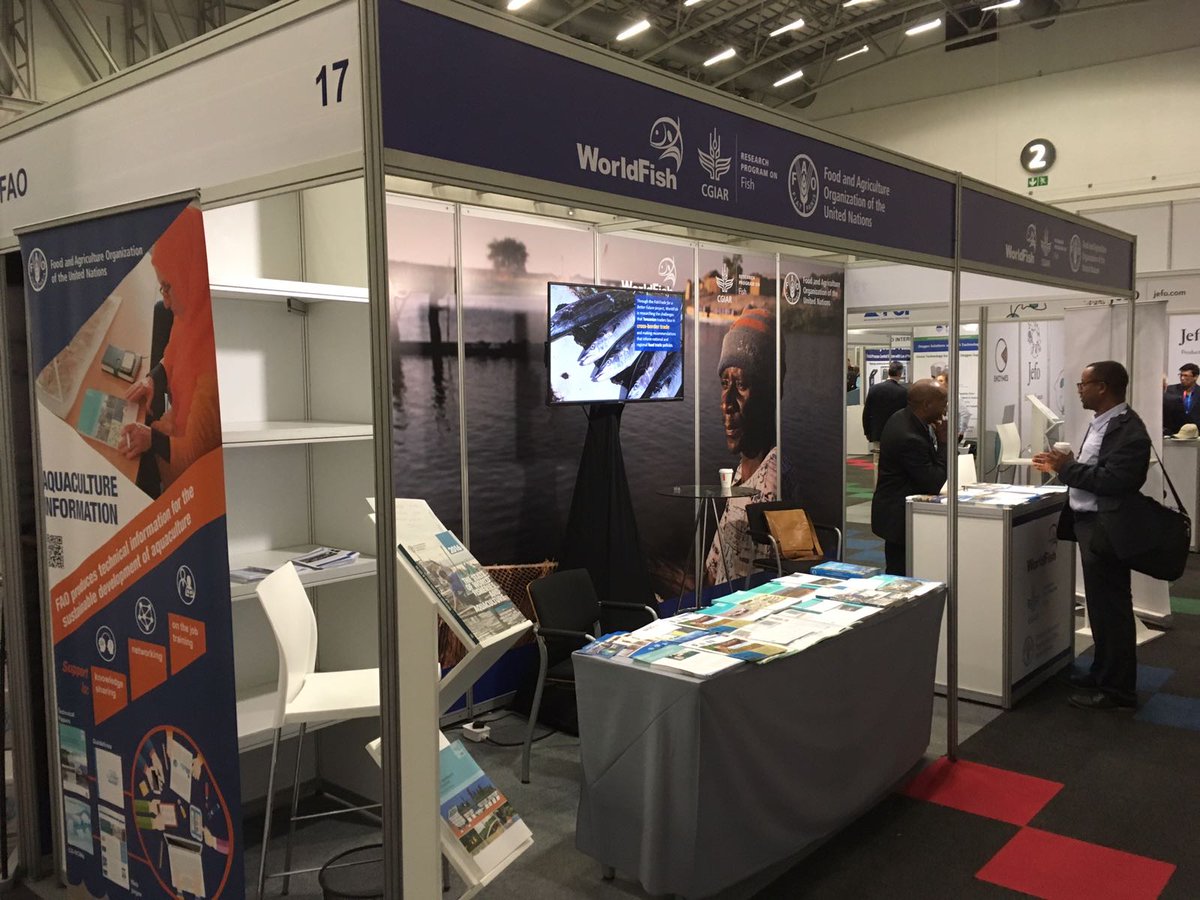
African Extrusion Seminar Aquatic Feeds
Discussions on African Aquaculture, Extrusion Cooking, Drying, Coating and
related functions for production for all styles of aquatic feeds centered on
profitability. Feed ingredient selection, grinding, methods of producing floating,
sinking and slow sinking feeds. Related products include pet foods, ingredient
creation, breadcrumbs for fish coating before frying giving a full review of
extrusion possibilities.
Aquaponics workshop
Biofloc Technology Short Coures
Explore Sideways Catalogue 2017
Biosecurity Sessions Workshop
A special session has been organized for the WAS Annual Meeting in Cape Town, RSA to review the status, growth potential and risk profiles of African aquaculture investments, with a focus on the amounts and types of capital needed to help the sector produce revenues, jobs and fish for a growing continent. The session will feature presentations from aquaculture specialists from a range of financial and development institutions interested in African aquaculture, and plenty of time for questions and discussion with a view to helping farmers better understand the constraints for bankers, and helping bankers understand the opportunities in the aquaculture sector.Aquaponics workshop
Biofloc Technology Short Coures
Explore Sideways Catalogue 2017
Biosecurity Sessions Workshop
The African Union – Interafrican Bureau for Animal Resources (AU-IBAR) chaired this session.,The transformation in the continent’s aquaculture development approach is enshrined in the ‘Policy Framework and Reform Strategy for Fisheries and Aquaculture in Africa’. This strategy that is currently under implementation serves as the continent’s blue print for aquaculture development. The strategic objective for aquaculture under this strategy is to jump-start market-led sustainable aquaculture based upon sound scientific principles and evidence-based strategies and implementation plans.
Aqua Spark’s Amy Novogratz, launching the fund during a seminar on financing African aquaculture, said she and her partner Mike Velings were looking for additional investors to come on board.
It already backs a tilapia farm in Mozambique and has interests in Indonesia and in an Indian Ocean sea cucumber farm, among others.The aim is to build infrastructure ‘for a thriving sub-Saharan aquaculture sector’, and help provide farmers access to global markets and to Aqua Spark’s portfolio of companies, which includes feed manufacturers. Aqua Spark is the only investment fund in the world dedicated to aquaculture, said Novogratz, and it considers thousands of applications before deciding which companies to support.
Highlight:
Impact of Mycotoxins on Aquaculture Fish Species: A Review
As the use of ingredients of plant origin has increased in aquaculture, the potential for mycotoxin poisoning in fish has increased accordingly. Feeding fish with mycotoxin-contaminated feed can lead to a breakdown in health, manifested as tissue damage or through immunosuppression. Both effects can lead to an increase in mortality. To date, however, there have been few reports of mycotoxins in feed at toxic concentrations. The aim of this study was to describe the effects of those toxic mycotoxins most commonly found as contaminants in fish feed. In terms of fish health, the most harmful mycotoxins are aflatoxin B1 and Fusarium mycotoxins. The most sensitive fish species was rainbow trout, Oncorhynchus mykiss. Future research in the field of mycotoxicosis in fish should be focused on the effects of combinations of mycotoxins.

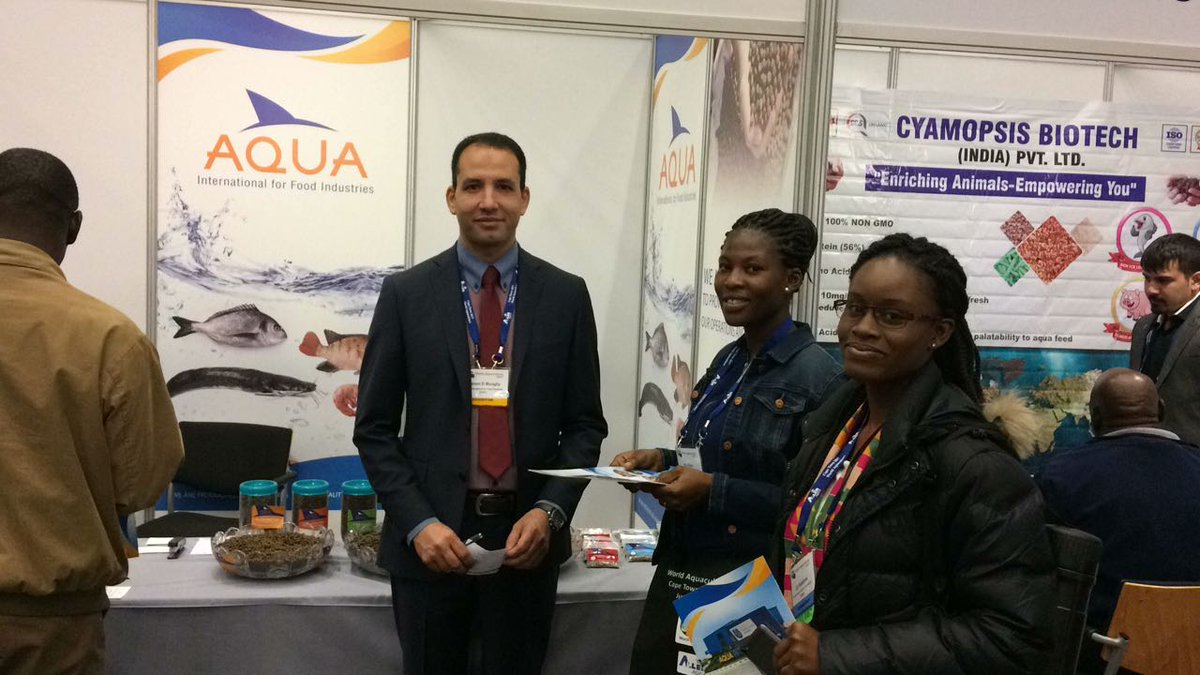

No comments:
Post a Comment